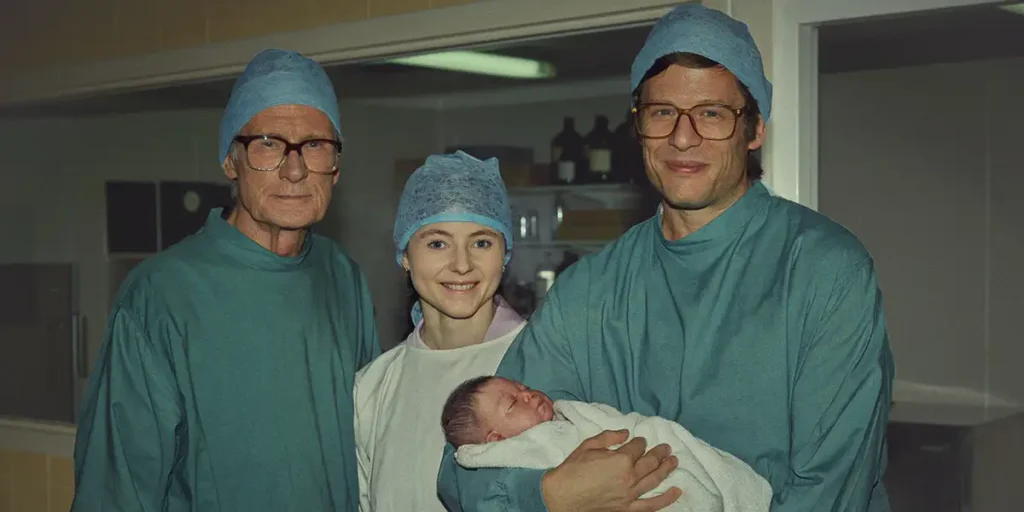Joy is smart enough to make the women responsible for the development of IVF front and center, but it leaves too small of an impact.
Director: Ben Taylor
Genre: Biographical, Drama
Run Time: 115′
Rated: PG-13
Release Date: November 22, 2024
Where to Watch: Stream it on Netflix
The team behind Joy – director Ben Taylor, and screenwriters Rachel Mason and Jack Thorne – couldn’t have known that the world in which their film was released would be so relevant to its subject matter. With the results of the 2024 election, reproductive issues are at the top of mind for many men and women, with in vitro fertilization (IVF) in danger of being even further out of hand.
For as routine as it has become in recent decades, Netflix’s film concerns itself with a mirror to today’s improbable politicization of the medical procedure, and the people who were originally caught in its cross-hairs.
To its credit, Joy focuses equally on the scientific process of developing IVF as a viable alternative to infertility and on the debate behind it. Indeed, within the first few minutes of the film, Dr. Robert Edwards (James Norton, of Bob Marley: One Love), Jean Purdy (Thomasin McKenzie, of Last Night in Soho), and Dr. Patrick Steptoe (Bill Nighy, of Living) have essentially already figured out how to make IVF work in 1968. The remainder mostly deals with the testing as they seek success, and the uphill climb they face to get the procedure to work, though the developments cling to predictability, the results are largely inoffensive.
Taylor makes efficient work of establishing the three leads: Edwards is the brash, headstrong leader, prone to appearing on TV or radio and immediately regretting saying something inflammatory. Steptoe is the brilliant surgeon who lends credibility to the process. Meanwhile, Purdy is essentially the lead, having to navigate the work she does and her Catholic upbringing, which causes a rift between her and her mother. Perhaps coincidentally, Purdy has to balance everything with her own struggles to become a mother.

Anyone who’s seen any number of true-life medical dramas won’t be surprised by the ups and downs that Joy takes them on. There are a number of internal and external conflicts that affect the team’s progress, from being labeled as “Frankenstein” and receiving backlash from the anti-abortion crowd, to in-fighting whenever a scientific setback comes along. Thankfully Taylor has the good sense to keep the women front and center, including the female patients who see IVF as their last hope after a lifelong struggle to conceive. None of the characters are shaded too deeply, and the performances of McKenzie, Nighy, and Norton aren’t bad, but won’t be mentioned at the tops of their resumes.
It’s hard to believe that there was once a time when the very idea of IVF was considered controversial, but Joy does a solid enough job of setting the tone of the time without feeling cartoonish. By the time Louise Joy Brown, the first successful IVF baby, is born in 1978, the team we’ve followed has dedicated 10 years of their lives to finding an almost impossible solution. And, as we learn over the closing credits, Jean Purdy wasn’t officially recognized for her work for over 35 years, long after she had died from cancer. Of course, the millions of people who have already gone through IVF, were born through IVF, or are considering it in the future will likely be more deeply affected – though I’d be lying if I said I wasn’t a little choked up by the end. Joy could have easily leaned into these thankless and tiring ways in which science and bureaucracy work, but the end result is merely passable.
Joy will available to stream globally on Netflix from November 22, 2024.

